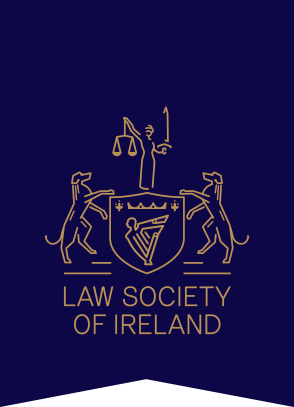Engagement
A broken engagement can be a very painful and confusing experience. Aside from the emotional distress, the parties must decide:
- who keeps the engagement ring
- what happens to any wedding gifts they may have received
- what happens any property, for example, a house
- Expenses incurred in preparation for the wedding
Legislation applicable
The Family Law Act 1981 covers what should happen following a broken engagement.. The relevant sections under the act are sections 2-7. There is a three year time limit for the bringing of actions under this act.
Engagement Ring
If you are engaged and you give gifts to each other (including an engagement ring), it is presumed that they are given on the condition that the gifts will be returned (if the donor requests) should the engagement end. If one of you dies it is presumed that the gifts the deceased gave were given without any conditions, so the survivor can keep the gifts.
In Ireland we take a ‘no fault’ approach. Whereas in other jurisdictions they maintain a fault based system. For example, in Ohio, it has been held that where the donor ended the engagement, the donnee may keep the engagement ring, even if it was a family heirloom.
Wedding Gifts from Third Parties
Where someone gives an engaged couple or one of you a wedding gift, it is presumed (unless there is evidence to the contrary), that it is given to both of you as joint owners. It is also presumed that the gift will be returned (if the donor requests) should your engagement end. This includes where one of you dies. The third party has three years to reclaim the gift.
S.6 of the 1981 Act provides that where a party to a broken engagement received a beneficial interest of a: ‘substantial nature’ from a third party, other than a wedding gift, that third party is entitled to recover the gift or its money’s worth. The court will make whatever order is just and equitable in the circumstances. There is no definition of ‘substantial nature’ in the Act, therefore it is a matter for the discretion of the court. However, a judge has remarked in a previous case that: ‘substantial’ should be interpreted in terms of the resources of the party in question
Property – house
Section 5 of the 1981 Act provides for situations that arise concerning rights to property. It applies to real and personal property in which either party has a beneficial interest during the engagement period. There can be no claim to property acquired before or after the engagement period. What happens if there is a dispute regarding the existence of the engagement i.e. if the girlfriend claims they were engaged at the time the property was acquired, but the boyfriend contends they were not. In this situation, the court looks at the corroborating evidence to support either side. Such evidence is not necessarily conclusive or essential, but may prove useful to the court in deciding the issue.
What happens if you buy a house and your name is the sole name on the deeds. A few months later your partner moves in and everything goes well at first but then the relationship turns sour and the engagement is broken off. Can your partner claim any interest in your property which is in your sole name? The rules generally applying to beneficial ownership of property holds he must have made a financial contribution to the house to acquire an interest in it, i.e. by paying the mortgage. He could argue that discharging day to day expenses left more money to pay the mortgage.
Expenses incurred in preparation for the wedding
Where your engagement has ended and you have incurred substantial expenses in preparation for the marriage, you may apply to the courts for compensation from your ex-fiancé(e) providing you have not benefited from the expense. These expenses might include, for example, expenses incurred in booking the wedding reception or honeymoon. A third party (such as, a family member or friend), who similarly incurs substantial expenditure in preparation for the marriage on behalf of one of you, and has not benefited, may also apply to the courts for compensation.










